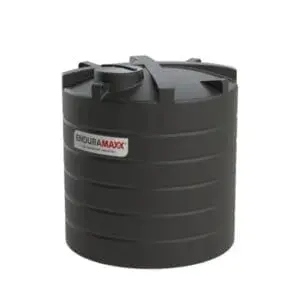You may not be aware of all of the different types of water. What the differences between them and why is it important. Find out all about it in this blog!
(1) Potable Water
Potable water is water that is safe to drink or use when preparing food. Europe maintains strict regulations for drinking water quality which involves maintaining microbiological & chemical guidelines wherever potable water is accessed. Modern water treatments range from advanced commercial systems that supply water to thousands of households, to small residential collection systems that purify water for individual use. For more information on water quality, visit the Water Regulations Authority Scheme here. View potable water tanks, on our website!
(2) Rainwater
Rainwater is precipitation that has not touched a ground surface. Often rainwater is collected via roof surfaces that drain through a pipe system and are filtered, finally being collected in a tank or barrel. Rainwater is used for large- and small-scale applications and in a variety of settings i.e. commercial, irrigation, agriculture and residential. Interested in rainwater harvesting and what to know how much you can save – view the Met Office website for rainfall in local areas.
(3) Stormwater
Stormwater is rainwater that has met the ground or runs into nearby sewers, streams, and other bodies of water. Runoff includes water from activities such as washing cars or watering lawns in which often this water must be treated. Stormwater is managed and treated to maintain ecological health, to mitigate flooding and erosion both in urban settings and in nature. Stormwater treatment usually involves treating and diverting water, which can be done with many different types of systems.
(4) Grey Water
Greywater is water that has been used in sinks, showers, baths, dishwashers, or washing machines in living or workspaces. Greywater is generally safer to handle and treat for re-use. The criteria for re-use depends on what the water was initially used for, as it may contain household chemicals from cleaning or other activities.
Once treated, greywater can be reused for non-potable purposes like toilet flushing or landscape and crop irrigation. Greywater treatment and re-use is environmentally friendly, resulting in less energy consumption and efficient re-use of precious resources. Greywater systems can also be installed for residential or small building purposes.
(5) Black Water
Once-used water discharged from kitchen sinks and toilets and generally contains contamination. Blackwater cannot be treated or reused in any way as it contains bacteria and disease-causing pathogens as there is too high a risk of contamination and so it is disposed of.
(6) Surface Water
Surface water is any body of water found on the Earth’s surface including oceans, lakes, rivers, and streams. Man-made sources such as dams, are relied upon heavily for human use and is typically where drinking water and mass farmland irrigation water is sourced from. This water undergoes advanced treatment processes of filtration to be suitable for human use and consumption. Large water treatment plants typically take on the bulk of a municipality’s water treatment needs and ensure that it meets requirements for safe consumption.
(7) Ground Water/Well Water
Groundwater is the water that is present beneath the earth’s surface, such as in wells or aquifers. Groundwater is predominantly used for irrigation purposes (both individual, commercial, and agricultural uses). Groundwater is sometimes collected via wells and is a great way to save on household water use costs when used correctly.
Want to learn more about water storage tanks for the different types of water explained here? Visit our main website to discover all the possibilities for water storage, transportation, and use.
Posts By Topics
- Blog (303)
- Chemical Storage Tanks (118)
- Chemical Dosing Tanks (114)
- Chemical Tanks (114)
- Water Tanks (58)
- Rainwater Harvesting Tanks (43)
- Vertical Rainwater Tanks (31)
- Vertical Storage Tanks (31)
- Cone Bottom Tanks (19)
- Conical Cone Tanks (18)
- Rainwater Harvesting (17)
- Water Bowsers (15)
- Horizontal Tanks (14)
- Potable Water Tanks (13)
- Farming (9)
- Case Studies (8)
- Industrial Storage Tanks (7)
- Liquid Fertilser Storage Tanks (6)
- WRAS Approved Potable Tanks (6)
- Wine and Beer Production (6)
- Horizontal Transport Tanks (5)
- Microbrewery (5)
- Rainwater (5)
- Category 5 Break Tanks (4)
- Cider Production (4)
- Mixer Tanks (4)
- Molasses Tanks (4)
- Polyethylene tanks (4)
- Rainwater Filter Kits (4)
- SPECIALIST & BESPOKE TANKS (4)
- Bunded Tanks (3)
- Slimline Tanks (3)
- WRAS Approved (3)
- Clarification Tanks (2)
- Crosslinked Polymer Tanks (XLPE) (2)
- Fertiliser Tanks (2)
- Sump Tanks (2)
- Tank Installation (2)
- Water Butt (2)
- underground water tanks (2)
- ACCESSORIES & FITTINGS (1)
- ATV & UTV SPRAYING UNITS (1)
- Above Ground Effluent Tanks (1)
- Bespoke Tank Frames (1)
- Category 5 Turret (1)
- Caustic Soda Tanks (1)
- Closed Top Bunded Tanks (1)
- Craft beer (1)
- Effluent Tanks (1)
- Enduramaxx (1)
- Ferric Chloride Tanks (1)
- Fire Safety Regulations (1)
- Fire Sprinkler Water Storage Tanks (1)
- Industrial Water Tank (1)
- Open Top Bunded Tanks (1)
- Open Top Cone Tanks (1)
- Open Top Vertical Tanks (1)
- Polyethylene Potable Water Tanks (1)
- Polyvinylidene Fluoride (PVDF) Tanks (1)
- Polyvinylidene Fluoride Tanks (PVDF) (1)
- Pressure Washers (1)
- Pro Series Spot Sprayers (1)
- RWH (1)
- Sodium Hydroxide Storage Tanks (1)
- Sprayer Fill-up Tanks (1)
- Uncategorised (1)
- liquid fertiliser tank (1)
Sign up to the newsletter
enduramaxx.marketing
Related Posts
Purified Water Storage Tanks: Why Mains Water Often Isn't Clean Enough
Clean mains water often isn't clean enough for application in pharmaceutical production lines. One...
Potable or Non-Potable Water Tanks: What’s The Difference?
What’s the difference between potable and non-potable water tanks? If you’re considering purchasing...
Conical Purified Water Tanks & Treated Water Tanks
There many advantages of using conical tanks for purified water & storage as treated water tanks....
Related Products
From £1,080.00 inc. VAT
£900.00 exc. VAT
From £1,344.00 inc. VAT
£1,120.00 exc. VAT
From £768.00 inc. VAT
£640.00 exc. VAT
£480.00 inc. VAT
£400.00 exc. VAT





